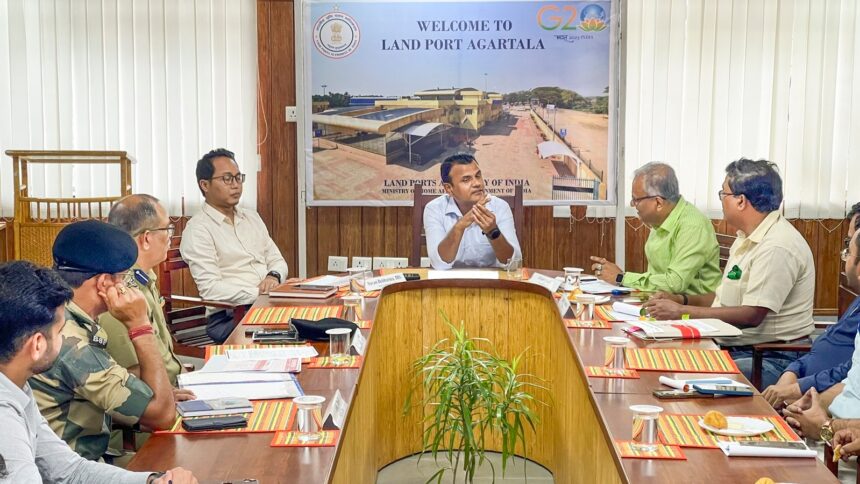Tripura Monday held a high-level meeting to discuss implementing the Centre’s new restrictions on the import of certain products from Bangladesh through land ports.
The meeting, chaired by Shailesh Kumar Yadav, Director, Tripura Industries and Commerce, highlighted the concerns related to the operations and procedures based on the Directorate General of Foreign Trade (DGFT) order that restricted import of some items through any Land Customs Stations or Integrated Check Posts (ICPs) in Assam, Meghalaya, Mizoram, and Tripura and LCS in West Bengal’s Changrabandha and Fulbari. These items include garments, plastic goods, wooden furniture, fruit drinks, and processed food items.
In the meeting, Yadav said that some items, including edible oil, fish, LPG, and crushed stone, from Bangladesh would not come under restriction.
Officials of the Border Security Force (BSF), Customs, Immigration and other departments also attended the meeting.
Trade representatives welcomed the move, and committed to comply with the restriction.
Unlike the western border with Pakistan, India’s eastern frontier with Bangladesh has been a friendly border for the last five decades until the fall of the -led Awami League government in August last year and the rise of a chief advisor’s rule and his recent comments.
Chief Advisor has said that if Bangladesh were destabilised, it would affect West Bengal and Northeast India. During his March visit to China, Yunus said with Northeast India being “landlocked”, Bangladesh was the “only guardian of the ocean for all this region” — a statement widely interpreted as an attempt by Dhaka to assert its leverage over access to Northeast India — a matter of concern for .
Leaders across the political spectrum have condemned these comments, terming them as indirect threats against India.
Tripura shares an 856-km-long border with Bangladesh, parts of which are still unfenced due to local disputes.








